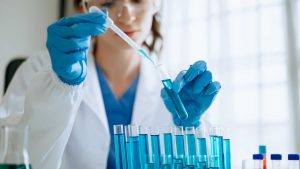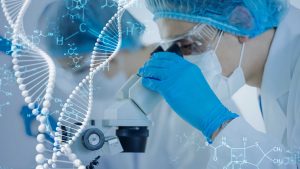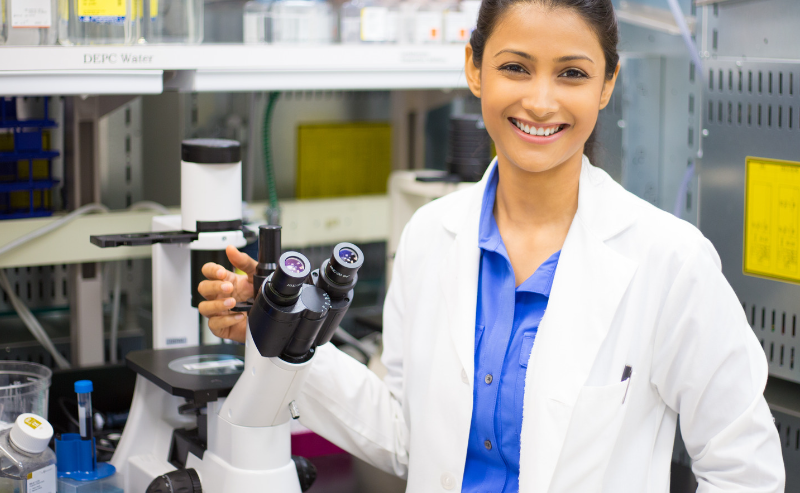Are you curious about the exciting career opportunities that await in the field of Biomedical Science? The world of Biomedical Science is vast and offers a plethora of career options for those interested in science and medicine. From Toxicologists to Medical Sales Representatives, there are plenty of roles that you could consider. In this blog post, we will be highlighting the top 10 Biomedical Science careers that are worth exploring. So whether you are a student thinking about your future or a professional looking for a career change, read on to discover these exciting job opportunities and what they entail.
What Jobs Can You Get With a Biomedical Science Degree?
1. Toxicologist

Professionals who specialize in toxicology conduct research on the impact of chemicals and drugs on living organisms while ensuring product safety. They are employed in various fields like pharmaceuticals, environmental organizations or government agencies. Additionally, they are involved with forensic investigations- analyzing biological samples to identify poisons or drugs used. This career path requires strong qualifications like a degree in Biomedical Science along with relevant certifications.
2. Medicinal Chemist

As part of the drug development process, biomedical science graduates can explore several career options such as the role of a medicinal chemist. With specialist knowledge in molecular biology, pharmacology, and organic chemistry, these professionals collaborate with other scientists to design and synthesize new drugs or improve existing ones. A degree in chemistry or biochemistry, internships and work experience opportunities are some of the entry requirements for this career option.
3. Environmental Engineer

Professionals with a biomedical science degree can consider a career as an environmental engineer. These engineers apply principles of engineering, biology, and chemistry to protect the environment. They work on projects related to pollution control, waste management, and environmental sustainability. Environmental engineers can work in various industries such as government agencies, consulting firms, and research institutions. To become an environmental engineer, one must have a degree in environmental engineering or a related field. Strong communication skills and specialist knowledge are crucial for success in this career area of interest.
4. Biomedical Scientist

Biomedical science graduates can pursue numerous career options with their degree. Biomedical scientists work in various settings across multiple sectors like healthcare organizations, research institutes, or pharmaceutical industries. A biomedical scientist’s job entails conducting research on the human body and developing new drugs or treatments for diseases by applying specialist knowledge in areas such as molecular pathology, microbiology, or immunology. Besides technical knowledge and expertise, excellent communication skills are vital to develop collaborations across the healthcare sector.
5. Biotechnologist

Biotechnologists use their specialist knowledge of genetic engineering and living organisms to develop new drugs and therapies for various healthcare organizations such as the NHS in the UK or pharmaceutical industries. With an increasing demand for drug discovery in clinical trials, there are numerous career options available for biomedical science graduates seeking further study or internships. A master’s degree or placement year can offer trainees specialist knowledge in areas such as microbiology or immunology. Communication skills are vital when presenting lab test results to colleagues or working with private sector hospitals.
6. Neuroscientist

Professionals who specialize in understanding the nervous system’s relationship with behavior and cognition are known as neuroscientists. By using various techniques like brain imaging, they assess brain function and neurological disorders. These experts work across multiple fields like academia or pharmaceuticals. Pursuing a career in this field requires a strong foundation in biology along with other subjects like physics or math. Along with teaching positions or research roles for neuropsychologists; there is an increasing demand for neuroscientists due to growing interest in brain health.
7. Forensic Scientist

Using scientific methods to examine physical evidence related to crimes or accidents, forensic scientists work hand-in-hand with law enforcement agencies to solve cases. There are many specializations within the field of forensic science including DNA analysis, ballistics, and toxicology. If you’re interested in this area of study, look into gaining experience through internships or trainee positions. Entry requirements vary depending on the area of interest but typically include a degree in forensic science or a related field.
8. Medical Sales Representative

Medical Sales representatives are essential for promoting and selling healthcare products to professionals. They require excellent communication and negotiation skills with knowledge of the latest regulations. Marketing or Business degrees can lead to work experience opportunities in the commercial sector, including pharmaceutical industries. The job requires you to stay updated with new innovations, making it a dynamic field for biomedical science graduates.
9. Genetic Counsellor

Genetic counselling is an important healthcare profession for those dealing with inherited conditions. Professionals in this field provide education about treatment options and help patients make informed decisions about their health. Genetic counsellors work across multiple settings like hospitals and clinics. They must have a master’s degree in genetic counselling or related fields. Becoming a successful genetic counsellor requires gaining specialist knowledge through higher education programs and internships followed by registration with the HCPC.
10. Analytical Chemist

Analytical chemists play a crucial role in biomedical science by developing and validating new lab test methods, researching the human body, and ensuring quality assurance. With career options ranging from forensic science to drug discovery, biomedical science graduates can find jobs across the UK in both the public and private sectors. An analytical chemist typically requires a master’s degree or a PhD in analytical chemistry or a related field along with excellent communication skills.
Conclusion
In conclusion, the field of biomedical science offers a wide range of exciting career opportunities. From toxicologists to genetic counselors, each job has unique challenges and rewards. If you are considering a career in this field, it is important to do your research and find the right fit for you. With so many options available, there is sure to be a position that matches your interests and skills. Take the first step towards your dream career by exploring our comprehensive guide on the top 10 biomedical science careers.









